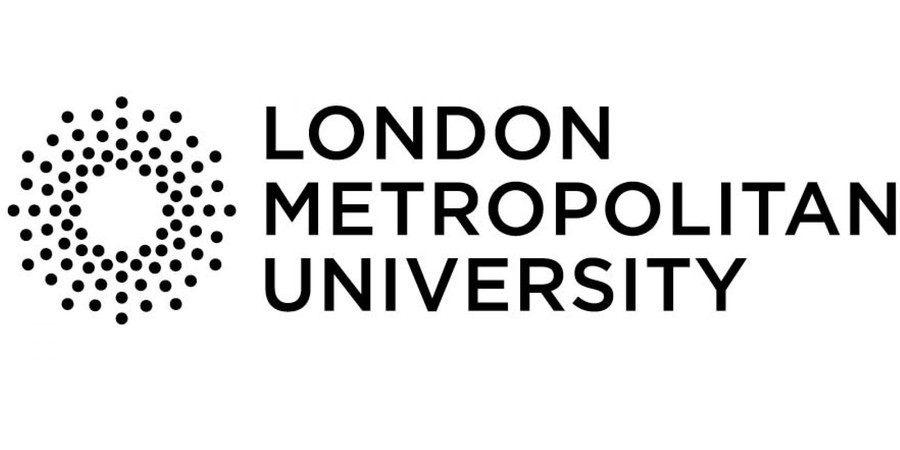Course Details
This MSc programme will develop critical and practical skills applied in the field of aviation management. The blended learning option enables students to work full-time and study this MSc in Aviation Management.
Level
PostgraduateQualification
Masters Degree| Course | Delivery Mode | Start Date | Duration | |
|---|---|---|---|---|
| MSc Aviation Management |
Online with live lectures
|
12th October 2024 | 1 year |
Overview
What will I study during this MSc Aviation Management course?
During this Masters programme, you will learn about the latest systems and technologies of aviation, ensuring you have the most up-to-date knowledge, in a sector that’s constantly evolving. You will learn about the concept of e-commerce within aviation management and the impact the digital age will continue to have on the strategic activities of airlines and airports. You will learn about leadership and strategic management theories and further develop your leadership skills through the application of theory to practice.
MSc Aviation Management Course
Studying project management and developing the ability to create, manage and close projects effectively is an important skill developed during this programme. Making use of project management software is another key skill you will develop. You will be introduced to the different theories, methodologies and data sources which will allow you monitor and understand the logistical strategies developed by the major global producers and consumer goods intermediaries.
Exploring the sustainability context, and how business practices will need to evolve to reflect the realities of operating within a globalised trading system that is striving to apply sustainability principles is a key benefit of studying this programme. This is an important area of increasing scrutiny for airlines and airports.
Learning to evaluate the complex range of financial issues that airline managers have to address to ensure a sustainable business in the long term and how to manage the critical aspects of negative financial exposure that are common in the sector.
Course Aims
Students will further develop skills such as critically analysing and problem solving in the context of strategic decision making. Practical industry insights and presentations ensure that students relate theory to real-life work scenarios.
This MSc degree programme is designed to encourage student interaction and contribution by developing their ability to work independently, in proposing and developing solutions to problems in a systematic and effective manner, and in communicating confidently and clearly both in writing and verbally.
-
Leading, Managing & Developing People
This module aims to provide learners with a rigorous framework of knowledge and understanding concerning people management that they will need whatever the degree of specialism they choose within their careers in HRM/HRD. It seeks to familiarise learners with major contemporary research evidence on employment and effective approaches to HRM and HRD practice. Research focusing on the links between people management practices and positive organisational outcomes is covered as is research which highlights major contemporary changes and developments in practice. In addition the module introduces the major aims of HRM and HRD and explores how these are achieved in practice in different types of organisations. The module covers the CIPD module Leading, Managing and Developing People together with some of the content of CIPD’s HRM in Context (Contextualising Management).
This module also addresses many of the skills areas required by CIPD in its module Developing Skills for Business Leadership, including encouraging learners to develop a strong sense of self-awareness and of their own strengths and weaknesses as managers and colleagues. Thus, the module is also concerned with developing understanding and skills in a number of areas that constitute effectiveness in management, and specifically the management of self and of others. In addition it seeks to help learners to develop and improve a range of definable skills which are pivotal to successful management practice and to effective leadership in particular. These include thinking and decision-making skills and a range of team working and interpersonal skills and others associated with developing personal effectiveness and credibility at work. Digital literacy is addressed in an integrated manner throughout the module.
Finally, the module seeks to help learners make the most of their formal programmes of study with the inclusion of key post-graduate level study-skills and aids students in exploring the connection and the implications for – and applications in – professional practice through continuing professional development and personal development planning.
-
Strategic Operations Management for Airlines & Airports
The focus of this module is to develop the capabilities and knowledge to enable graduates to contribute to the strategic and operational direction of airlines and airports. Specific themes covered include exploring strategic operations management within an increasingly turbulent aviation environment; aviation competition, business diversification, managing change and safety/emergency management.
-
Aviation Governance & Regulation
This module is designed to give the learner knowledge and understanding of national and international aviation policy, governance and regulation. Covered during this module is the system of rules governing the operation of international air transport including the Convention on International Civil Aviation (commonly referred to as the Chicago Convention).The Convention and its nineteen detailed annexes remain the rule-book for international air transport and are fundamental to governance and regulation of the aviation industry..
Learners gain knowledge of the evolving EU regulatory agenda and how it extends to all areas of aviation. Also covered are other EU and international organisations and the role they play in the development of the EU and international regulatory agendas in aviation. These include The European Aviation Safety Agency (EASA) with responsibility for proposing and monitoring the implementation of EU safety rules and regulations and EUROCONTROL.
Given the global context, many of the decisions that affect aviation, an understanding of the development of policy and regulation at an international level is a key outcome from this module.
-
Strategy, Leadership & Innovation for Aviation Managers
This core module supports the development of the learner through their engagement with Leadership and Strategic Management theory and further develops their on-going leadership skills through the application of theory to practice. It will also prepare and develop them for an organisational leadership and/or management role. Key features of the module are an emphasis on effectiveness in a leadership role together with doing this in a socially and ethically responsible manner. The module draws on a wide-range of academic research and professional experience. It introduces core leadership and strategic management concepts and encourages students to develop a critical, analytical approach to solving work-based leadership/ management issues. Students will develop an awareness of different theoretical perspectives so that the complexity of managerial work is explored rigorously. The module explores a range of strategic and operational perspectives through academic research and an examination of work-based issues. It encourages students to adopt a reflective approach on current practice and critique academic theory in relation to their future leadership and management development. This module contains a strong experiential learning approach.
This module aims to stimulate the student’s critical awareness and application of key leadership and strategic management theories to their own practice and develop their ability to evaluate current practice in the light of relevant academic theories. It is expected that students will develop an increased awareness of the impact and influence of leaders and their own leadership development.
This module also introduces the student to an understanding of the role of commercial planning in a digital age as critical to profitable airline operations. Air routes are the life blood of airlines and assessing catchment areas and aircraft operations to satisfy demand is absolutely critical to airline and airport development.
-
Finance & Forecasting Methods for Airline & Airport Operations
This module introduces the vital appreciation of the management of airline costs as a key management skill for commercial airline managers. The airline industry in particular is highly volatile because of the complex costs of production of the service and is subject to violent external shocks on a regular basis. A sound financial strategy is therefore vital to airline survival and the module introduces techniques and tools to assess the steps to take for long term profitability.
The module takes an in-depth look at factors affecting costs, revenues and profitability at both airlines and airports and the ramifications of any such changes. Attention will also be given to forecasting for
The module aims are therefore to evaluate the complex range of financial issues that airline managers have to address to ensure a sustainable business in the long term and how to manage the critical aspects of negative financial exposure that are common in the sector.
-
Aviation Economics and Financial Management
This module will address the critical issue of how current thinking on sustainability will impact on Aviation businesses and organisation. The need to create more sustainable organisations and businesses is fundamental to current and future organisational development strategies, and it is necessary for students to understand the growing influence of environmental economics and the sustainability agenda on the aviation industry. This influence takes on many forms, from government policies and international agreements to measuring the impacts of organisational practices on the ecology and communities. It is clear that in the future, organisations, businesses, communities and individuals will be expected to understand and take responsibility for their economic, environmental and social impacts. This module will examine the current and future challenges, it will equip students with knowledge to deal with the challenge of creating sustainable forms of business that operate within ecological and socio-economic limits.
It will explore the sustainability context, and how business practices will need to evolve to reflect the realities of operating within a globalised trading system that is striving to apply sustainability principles. This is an important area of increasing scrutiny for airlines and airports.
-
Management learning and Research
The module is designed to provide students with an understanding of the skills needed for planning, organisation and practice of research in management.
By the end of this module, students will be able to:
– utilise available resources effectively: ability to work autonomously, find and use learning resources, manage time effectively, use computer based skills (word processing, mathematical, statistical, referencing, presentation);
– apply advanced statistical hypothesis testing tools;
– manage the project process: from proposal to publication;
– work collaboratively with others: building inter-disciplinary relationships;
– be a morally responsible researcher: an appreciation of the wider academic community and the ability to take an ethically sound stance when considering the potential impact of research on others;
– communicate effectively: being able to communicate knowledge both orally and in a visual format, to demonstrate interactive and group skills; to write in a scientific manner and designated format; to demonstrate written and statistical literacies appropriate to sub-discipline.On successful completion of the module students should be able to:
- Formulate a novel research proposal at the forefront of their academic discipline.
- Comprehensively understand ethical processes and procedures when undertaking research involving human subjects.
- Identify, employ and critically evaluate a range of statistical skills and techniques, showing a comprehensive understanding of their use, applicability and faults.
- Demonstrate critical scientific writing skills.
- Evaluate the routes of publication for research output in the student’s sub-discipline and the wider research community.
Who will I learn from?
Programme Manager
Personal Academic Tutor
Each student is assigned a personal academic tutor to support you throughout your learning journey. They are available to offer you telephone and email support at any time. You can arrange to meet them for further one to one guidance at a time convenient to you.
Many of our past graduates have found it is the opportunity to ask a simple question, seek direction and submit a draft of their assessment that supported them most to successful completion. Emailing your tutor at any stage during your programme to ask a query or submit a draft of your assessment supports you to achieve your personal best throughout your studies with Portobello.
This level of one to one support is a particular benefit to choosing Portobello as your Institute of choice to complete your studies.
How will I learn?
Delivery Mode
Webinars
The tutorial webinars are held at the start of each module and are designed to guide and support you throughout the module. These webinars lay out the module for you and the content you will cover. The assessment and expectations for successful completion are covered in detail as is where and how to access the information on the Moodle platform. You will be encouraged to connect with fellow students and have the opportunity to create your study network for the duration of your learning journey.
Tutor Support
You can email your tutor at any stage during the module to ask a simple query or submit a draft of your assessment. Our programme management team are always available to offer you telephone and email support and if you need to, you can arrange to meet them for further one to one guidance. Many of our past graduates have found it is the opportunity to ask a simple question, seek direction and submit a draft of their assessment that supported them most to successful completion. This level of one to one support is unique to blended learning and is a particular benefit to choosing this mode of study. Portobello Institute has invested in a team of programme managers and tutors who are experienced early years practitioners as well as qualified and knowledgable educators. They are available to assist you at every stage of this programme.
Course Structure
This masters programme is delivered over three academic semesters.
All of the course material is held on Classter, which is an easy to use online platform which will support your classes. To complete this course, students must have a basic knowledge of using a computer and searching the internet for research purposes.
Autumn 2024 Course Schedule
Semester 1 & 2
- Semester 1 runs from 12/10/24 – 05/01/25.
- Semester 2 runs from 08/02/25 – 31/05/25.
Tutorial webinar/seminar held on allocated Saturdays, 10am – 4pm.
Webinars are recorded so you may review at a later stage if you are unable to attend the live sessions.
Dates are subject to change
Semester 3
Semester 3 encompasses the Capstone Project and runs from 06/06/25 – 31/08/25
During this semester, you will work with your supervisor to complete a work-based project. Individual tutorials are generally held at times convenient to both.
How will I be assessed?
The assessments for this Masters degree are broadly assignment based. Assessments vary from practice based assignments to operational plans and reflective essays, all seeking to combine up to date and relevant theory with scenario-based learning and practical implementation.
Career prospects
The areas of aviation management you could work in include:
- Passenger handling management
- Airline Operations management – under wing
- Air cargo management
- Airline sales management
- Airline marketing management
- Revenue management
- Engineering management
- Cabin crew management
- Flight deck management
The specialist areas of aviation you could work in include:
- Airline finance and procurement
- Airline strategy
- Airline branding
- Airline IT support
- Airline Corporate Legal services
- Airline procurement
Speak to an expert
Your Consultant

Janice OToole
Education is a journey that we all begin and finish at different points in our lives. I support students from all walks of life as they map out the path to their dream career. As I am often the first point of contact for many prospective students, I am excited to introduce students to the Portobello Institute experience. I love learning about students’ ideas, goals, and passions, and this job allows me to do so.
How do I apply?
Entry to this Masters programme is by direct application to Portobello Institute.
Requirements
Without a Leaving Certificate
You will be required to have:
- a minimum of a 2.2 (or equivalent) in a related subject discipline
The course is also open to professionals already working in the aviation industry who may not necessarily have an undergraduate degree. However, you must have a minimum of two years related work experience at managerial level within the industry. This will need to be confirmed by two letters of reference. You’ll also need to submit a CV in support of your application.
Entry is by direct application to Portobello Institute You will be required to have:
- a minimum of a 2.2 (or equivalent) in a related subject discipline
The course is also open to professionals already working in the aviation industry who may not necessarily have an undergraduate degree. However, you must have a minimum of two years related work experience at managerial level within the industry. This will need to be confirmed by two letters of reference. You’ll also need to submit a CV in support of your application.
If you have experience which falls outside of this specification and is non-standard, we’d like to invite you to interview/Skype interview for a more detailed discussion relating to your application.
Fees & Payment Options
Fees
Course Price
Year 1 base fee
Exam Body Reg. Fee
Overall Course Price
Total amount due
Easy Payment Plan
Payment Option 1
30% deposit payment (€3,031.50), followed by 10 scheduled payments on the first of each month, commencing the 1st of the month after the start date of the course. Includes one off instalment fee of €395.
- €707.35 due in month 1
- €707.35 due in month 2
- €707.35 due in month 3
- €707.35 due in month 4
- €707.35 due in month 5
- €707.35 due in month 6
- €707.35 due in month 7
- €707.35 due in month 8
- €707.35 due in month 9
- €707.35 due in month 10
Available Courses
| Course | Delivery Mode | Start Date | Duration | Fees Per Year | |
|---|---|---|---|---|---|
| MSc Aviation Management |
Online with live lectures
|
12th October 2024 | 1 year | €9,710.00 |
Apply
Hooray! One small step for you, one giant leap for your future! Enter your email and you will be redirected to our application platform, where you can complete your application in your own time. Here's what to expect:
- Enter your email, name and mobile phone number
- You'll be redirected to our Application platform
- Start your application
- Choose your preferred payment option
(No payment required at this stage) - Submit your application
- One of our course advisors will review and be in touch
Apply
Hooray! One small step for you, one giant leap for your future! Enter your email and you will be redirected to our application platform, where you can complete your application in your own time. Here's what to expect:
- Enter your email, name and mobile phone number
- You'll be redirected to our Application platform
- Start your application
- Choose your preferred payment option
(No payment required at this stage) - Submit your application
- One of our course advisors will review and be in touch







